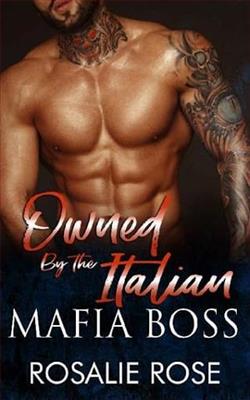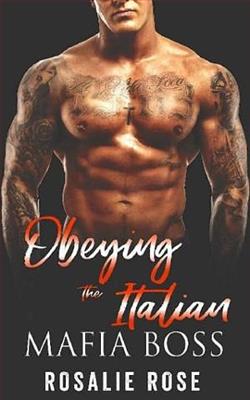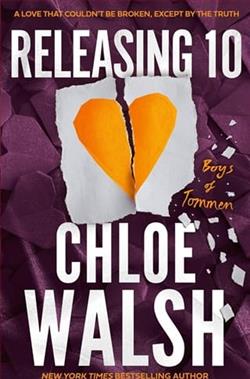Page 7 of The Strawberry Thief
Roux looked at me. I could tell he was thinking I talked too much.
‘I always wondered whatyourreal name was,’ I said, after a moment.
‘Keep wondering,’ said Roux.
Well, there was no point in pushing the matter. I supposed Roux would do what was necessary in his own time, at his own pace. For the present I needed to let him get used to the good news. For itisgood news, I think. Rosette is his child, after all. Surely he must be glad that she will have this parcel of land to her name: Rosette, who may never be quite like other girls; who may never have the opportunities that Anouk will have. Surely he must be glad that she will have what he has never had. A piece of land to call her own. A place where she really belongs.
I went back home via Les Marauds, passing the samosa stand. This time I bought one of Maya’s, leaving the money on the dish beside the covered box. I chose a fat pastry triangle, a purse filled with minced lamb and spices. I slipped it into a paper bag. It would do for my lunch, I thought, with a tomato salad and perhaps a tiny glass of wine. I no longer fast during Lent. I lost the habit years ago.
Maya popped her head out of the house to see who was buying her pastries. When she saw me, she gave a cry: ‘Monsieur Reynaud! That’s one of mine! You bought one of mine, Monsieur Reynaud!’
‘Really?’ I said, feigning surprise. ‘They looked so beautifully made that I assumed they were Omi’s.’
Maya laughed. Omi al-Djerba’s samosas have become a kind of legend, all the more so because Omi – who must be ninety at least – has not done any cooking for years.
‘Youknew,’ said Maya.
‘Of course I knew. I came all the way here to buy one.’
Maya laughed again. Her eyes are hazel, almost green, against the warm brown of her skin. It occurred to me that one day – one daysoon– she would be very beautiful.
‘Tell me, Maya. What would you do if someone – a friend – gave you sixteen hectares of woodland?’
Maya’s eyes widened. ‘A wood of my own?’
I nodded.
Maya gave it some thought. ‘I think I’d just sit there sometimes,’ she said. ‘I’d watch the animals and birds. I’d sit and think, and listen to the sound of the wind in the branches. And sometimes I would bring my friends, and play, and climb trees, and maybe build a treehouse, but mostly I’d just know it was mine, and that would be enough. Why?’
‘Because,’ I said, ‘Narcisse has left his sixteen hectares of oak wood to Rosette, and not to his relatives.’
Maya said: ‘They would cut down the trees. He knew Rosette would never do that.’
‘Is that what you think?’
‘Of course,’ said Maya.
Perhaps she has a point, I thought, as I walked back through Les Marauds. Narcisse could be sentimental. He wanted to protect the wood. Or maybe it was simply his final way of annoying Michèle and Michel, who had borne his moods and tolerated his eccentricities, and smiled at his jokes, and humoured him, and brought him little gifts – a cake, a bottle of his favourite wine – and asked after his health, and expressed concern at his aches and pains for two years, while mentally calculating the cost of a farmhouse, a shop and forty hectares.
It wouldn’t have come to much, I thought, even with the woodland. The farmhouse was old and in need of work, and if it had been by the sea, or even in a place like Agen or Nérac, it might have attracted the interest of a local developer. But here, in Lansquenet-sous-Tannes, it was just another piece of land in a place where land was plentiful. As Montour had already said, the mature timber was probably the most valuable asset on the property. Without it, there was just the farm; good for growing flowers and fruit, but not what you’d call a goldmine, and the florist’s shop in the square, which they would likely be able to let to another businessman.
There was no money to speak of. That, too, had come as a surprise. No shares, no savings account, not even a deposit box. Narcisse’s current account had contained five or six hundred euros. And contrary to local belief that he must have had money hidden away, a search of his house had revealed nothing – no loose floorboards, no sock stuffed with cash hidden underneath the bed. Michel and Michèle must be furious that their two-year investment had yielded so little.
I was reaching the square now. The sun was almost at noon, and even though it was only March, it was warm enough to burn. Narcisse’s flower shop was closed; the window covered with newspaper. There is aTO LETsign on the door. Michèle and Michel have wasted no time. An empty shop costs money. I wonder what it will become. A craft shop, perhaps, selling knick-knacks: perhaps another florist. There have always been shops in the square; Poitou’s bakery; thechocolaterie; the shop selling graveyard supplies; the little fruit-and-vegetable stand. In any case, whatever it is, I hope it will reopen soon: an empty shop window is bad for the square, and risks being the target of vandals.
Until then, I suppose there will be the kind of speculation that always surrounds an empty shop. I remember when Vianne Rocher first moved into town all those years ago. That window, papered in orange and gold, just like a Chinese lantern. That scent of spices, and incense smoke, like something from theArabian Nights. So many things have changed since then: now Vianne and I are almost friends. But how I resented that little shop, with its brightly coloured awning, and the scent of vanilla and allspice and the bitter rasp of raw cacao drifting out into the air. How I longed to step in, to taste the wares in those glass cases! Now, I tell myself, I could. But though I do not fast for Lent, chocolate still seems one indulgence too far. Maybe tomorrow, I told myself. Maybe I would call later. Maybe Vianne could give me news of what would happen to Narcisse’s shop, or shed light on his reasons for leaving his oak wood to Rosette.
But I had one last thing to do before I spoke to Vianne Rocher. One last duty to perform, before I could be easy again. I crossed the square and made for my home, still carrying Maya’s samosa. I ate it with a salad, deferring the wine for the evening. And then I made a cup of tea, and, sitting in my favourite chair, prepared to read the document Narcisse had left me.
7
Dear Reynaud,
How ironic that it should be to you that I make my confession. I never liked you. You must know that – and yet, you were the only one I could trust. If you are reading this, I am dead. How strange to write those words. Unlike you, I believe death is the end. No angels, no trumpets, no judgement. Just the darkness. That’s good. The nightmare would be to find all my friends and family waiting for me beyond the veil.
I expect you’ll be wondering why I made my will as I did. My daughter Michèle will be hopping mad. I never liked her, either. In fact, I could probably count the people I have genuinely liked on the fingers of one hand. Roux is one. Vianne Rocher is another. But it is Rosette, my strawberry thief, who found her way into my heart. You’ll learn why if you persist to the end of this narrative. And you will. I know you will. These words are all that’s left of me.
But I must start earlier. The truth is like an onion: layers of skin to be stripped away, revealing a centre that makes you weep. My father once said that to me. My father, the murderer.















